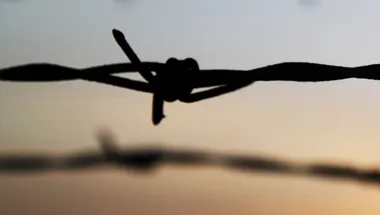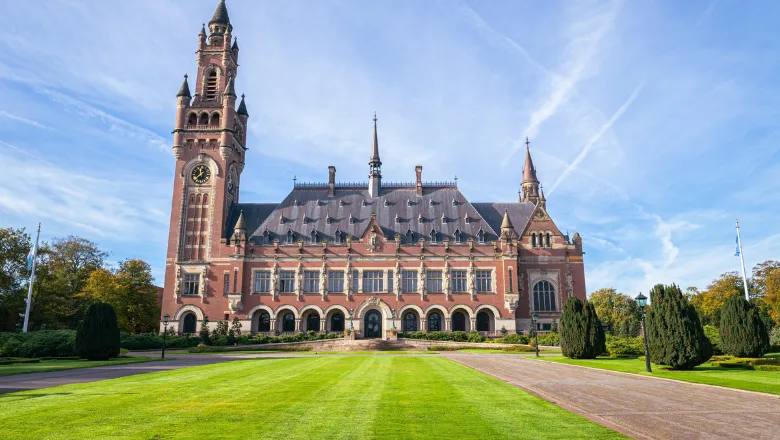
Elizabeth Brown
PhD Candidate
- MA International Peace & Security
Biography
Elizabeth Brown is a PhD student in the Department of War Studies, and recipient of a studentship from the London Interdisciplinary Social Science Doctoral Training Partnership (LISS DTP). She researches the interplay between human rights and security during conflict, with a particular focus on the legal, political, and moral repercussions when human rights are compromised. Her thesis is a contemporary history of the accountability processes which followed alleged British war crimes in Iraq (2003-2011) and Afghanistan (2001-2021).
In 2024, Elizabeth was a Visiting Junior Research Fellow at UNSW Canberra, at the Australian Defence Force Academy, where she conducted research into institutional responses following alleged war crimes by British and Australian Special Forces personnel in Afghanistan. During her time in Australia, she was an inaugural recipient of the Alice Edwards Breakthrough Researcher Award by the Australian and New Zealand Society of International Law.
Elizabeth is a contributor to Unredacted UK - a digital archive of documents relating to UK security practices - having helped to establish their ‘War Crimes in Iraq’ project. She also coordinates King’s War Crimes Research Group, a collective of interdisciplinary scholars working on atrocity crimes, international law, peace, and reconciliation. She is also a Graduate Teaching Assistant within the Department of War Studies, where she has experience teaching on international law, human rights, and contemporary security issues.
She holds a BA in War Studies & History (First Class Honours, 2019) and an MA in International Peace & Security (Distinction, 2020), both from the Department of War Studies at King’s.
Research Interests
- International law
- Atrocity crimes
- Transitional justice
- Human rights
- Military ethics and training
Thesis
On Politics and Justice: British Military Justice following War Crimes Allegations in Iraq and Afghanistan, 2001-Present
Elizabeth’s thesis concerns the complex web of domestic accountability processes which resulted from alleged British war crimes during the conflicts in Iraq and Afghanistan. She is producing a contemporary history of these mechanisms, charting the progress of accountability from early NGO reports and legal cases to the currently-ongoing public inquiry into alleged Special Forces war crimes in Afghanistan.
Supervisors
- Professor Rachel Kerr
- Professor David Whetham
Publications
- Elizabeth Brown, ‘Agnes Wanjiru, the British armed forces and the language of silence’, War Crimes Research Group Blog, 8 March 2024
- Elizabeth Brown, ‘War Crimes, Cover Ups and Britain’s Special Forces: Notes from the Afghanistan Inquiry’, OpinioJuris, 17 November 2023
- Elizabeth Brown, ‘Podcast Review: Shock and War’, e-International Relations, 22 September 2023
- Elizabeth Brown, ‘The Shadow of Impunity: Justice for the killing of Baha Mousa and lessons from Afghanistan’, Justice in Conflict, 18 September 2023
Research

War Crimes Research Group
Conducting research and teaching on war crimes (broadly conceived) and war.
Events

The International Law on the Use of Force: Current Developments
Delve into the evolving challenges of international law on the use of force with Sir Michael Wood KC this January at King’s College London
Please note: this event has passed.

Accounting for War Crimes: British military justice twenty years on from the death of Baha Mousa
Hosted by the War Crimes Research Group, the session seeks to reflect upon the events of the last twenty years of British accountability, and analyse what has...
Please note: this event has passed.
Research

War Crimes Research Group
Conducting research and teaching on war crimes (broadly conceived) and war.
Events

The International Law on the Use of Force: Current Developments
Delve into the evolving challenges of international law on the use of force with Sir Michael Wood KC this January at King’s College London
Please note: this event has passed.

Accounting for War Crimes: British military justice twenty years on from the death of Baha Mousa
Hosted by the War Crimes Research Group, the session seeks to reflect upon the events of the last twenty years of British accountability, and analyse what has...
Please note: this event has passed.
